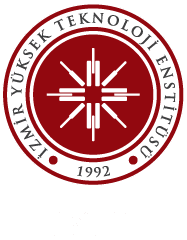Program Outcomes
Students who graduate from the IZTECH Civil Engineering undergraduate program are expected to have acquired the following qualifications.
- Adequate knowledge of mathematics, science and civil engineering and the ability to apply the theoretical and applied knowledge required in these fields in solving complex engineering problems.
- Ability to define, formulate and solve complex multi-component engineering problems, as well as the ability to select and apply appropriate analysis and modeling methods for this purpose.
- Ability to design a complex system, process, device or product to meet needs under realistic constraints such as economic, environmental, health, safety, manufacturability and sustainability. Ability to apply modern design methods for this purpose
- Ability to select and use modern tools necessary to solve problems encountered in civil engineering practice.
- Ability to use modern engineering tools, data collection and effective use of information technologies for the solution of complex engineering problems.
- Ability to collect, analyze and interpret data as well as design and perform experiments for the analysis and solution of complex problems or research issues specific to civil engineering.
- Ability to work effectively in teams of civil engineers and/or in multidisciplinary teams and to work individually.
- Effective oral and written communication skills in English, writing effective reports and understanding written reports, the ability to give and receive clear and understandable instructions, the ability to prepare design and production reports, and the ability to make effective presentations.
- Awareness of the necessity of lifelong learning, access to information, information about the standards used in engineering applications, the ability to follow the developments in science and technology and constantly renew oneself.
- Awareness of professional and ethical responsibility, acting in accordance with ethical principles, awareness of the legal consequences of professional activities.
- Information on project management, business practices, risk management and change management; knowledge of entrepreneurship, innovation and sustainable development.
- Information about the problems of the age reflected in the field of engineering, information on the effects of professional practices on the environment, health and safety in a universal and social context.
